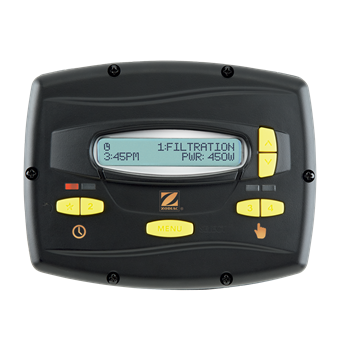ePump™ + SVRS
Energy Efficiency Combined with a Safety Vacuum Release System
SKU #JEP2.0SVRS
The ePump™ combines energy efficiency with a Safety Vacuum Release System (SVRS) for enhanced peace of mind. With eight variable speeds, a high-efficiency motor and “Quiet Technology”, the ePump with SVRS is one of the quietest and most efficient pumps available. This ENERGY STAR® certified pump consumes significantly less energy than a comparable 2.0HP single-speed pumps, offering savings of over $1,100 per year*.
SVRS technology aids in the prevention of full body entrapment hazards in compliance with the VGB Pool & Spa Safety Act (P&SS Act), and utilizes an ANSI®/ASME® A112.19.17 certified Suction Vacuum Release System.
ePump™ + SVRS Downloads
ePump™ + SVRS Accessories
ePump™ + SVRS Frequently asked questions
- Check the suction side piping union. While the pump is running, try to tighten the union. If this does not stop the air leak, turn off the pump. Loosen both unions and slide the pump out of the way. Remove, clean and re-install both union o-rings.
- Reposition the pump next to the piping and secure the union nuts to the pump. With clean union o-rings, hand tightening of the unions should create a seal. If the unions still do not seal, gently tighten with a large pair of tongue and groove pliers. DO NOT OVER-TIGHTEN.
- Air in system. Check the pool or spa water level to ensure it is at the proper level and that air is not being drawn into the suction plumbing.
- If the water is at normal level, turn off the pump. Remove the lid and check for debris around the lid o-ring seat, as this will cause air leaks in the system.
- Clean the lid o-ring and put the lid back in place.
- Hand tighten the lid to make an air tight seal.
- Do not use any tools to tighten the lid. Turn the pump back on.
- Verify that the skimmer baskets, pump basket and other screens are clean. Clean as necessary.
- Check filter and clean as necessary.
- Check valve positions. Adjust as necessary. Note: Multiple pieces of equipment operating at one time (for example, waterfalls, spa jets, and surface returns) will affect the cleaning system and may prevent it from working properly.
- Check the cleaning system manual to ensure that the system is adjusted according to the manufacturer's recommendations.
- Ensure that there is adequate room around the motor to circulate air and keep the motor cool.
- Have a qualified electrician check for loose connections and check the voltage at the pump motor while it is in operation. The voltage must be within 10% of the motors data plate rating. If the voltage is not within 10%, contact a qualified electrician and/or the local power service provider.
This is caused by a damaged or failed mechanical seal. Replace the seal. See the "Mechanical Seal Replacement" portion of the manual.
- The pump impeller and diffuser are showing signs of normal wear. Have a qualified service technician check the impeller and diffuser and replace as necessary.
- If the pump is part of a relatively new installation, it could be an electrical problem. Contact a qualified service technician. Have the technician check for loose electrical connections and check the voltage at the pump motor while in operation. The voltage must be within 10% of the motor's data plate rating. If the voltage is not within 10%, contact a qualified electrician and/or the local power service provider.
- Pump seal is leaking air. Have a qualified service technician replace the seal.
No, you only lose water in a pool if there is a leak, through splash out, and when you backwash.

